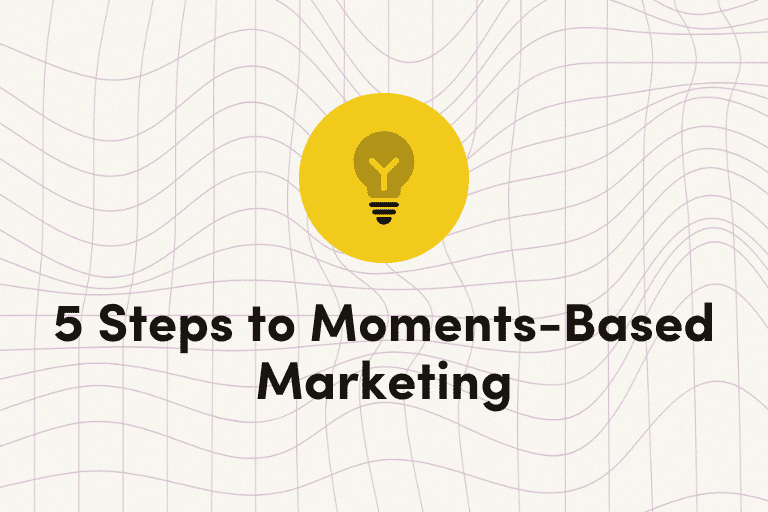As 2023 draws to a close we wanted to take a moment to reflect on all that’s happened over the past 12 months. In particular, we want to take a closer look at email marketing.
We took a look at the content we published in the past year and gathered resources from across the web to compile a list of the biggest email marketing changes we saw in the last year. These changes likely aren’t going anywhere, so let’s get to it.
1. Artificial Intelligence
Yeah, big surprise, AI is on the list. Artificial Intelligence really took off in 2023—specifically, generative AI. McKinsey, in fact, referred to 2023 as “Generative AI’s Breakout Year.” In the same article they mention, “The most commonly reported business functions using these [generative AI] tools are the same as those in which AI use is most common overall: marketing and sales, product and service development, and service operations, such as customer care and back-office support.”
So how did AI impact email marketing? While generative AI can and did help email marketers write the copy for the body of the email itself (like Grammarly’s professional email writing tool and Iterable’s Copy Assist), email marketing is impacted by AI beyond just the content creation. Take Iterable’s Send Time Optimization (STO), for example. With this tool, AI is employed to examine historical customer behavior—like engagement—and that data is used to dictate the best time for sending future emails.
2. Privacy
In 2023 email authentication quickly rose to the top of the priority list for email marketers. Back in September, Iterable’s Email Deliverability Consultant, Steve Duff, wrote about the importance of email authentication. He said, “Email authentication adds layers of security that bolster trust, safeguard personal information, and preserve the integrity of digital interactions in an effort to make email safe for both senders and recipients.”
Then, in October, Iterable’s Senior Director of Delivery Operations, Seth Charles, covered the upcoming Google and Yahoo email policy updates that hinge on email authentication. “Starting in February of 2024, both email platforms will begin to block and aggressively filter incoming email traffic that doesn’t meet new message authentication and procedural requirements.” While the impending changes don’t occur until next year, email marketers should start putting procedures in place to ensure their emails are viewed as authentic by senders.
3. Automation
This probably doesn’t come as a shock either, but automation had a moment in 2023 and it’s not stopping anytime soon. Automation takes the guesswork out of email marketing. While we don’t recommend a “set-it-and-forget-it” mentality (good to keep an eye on things and audit regularly), automation does help free up your time to focus on the bigger picture. With automation, instead of zooming into each email and thinking about when you’re going to hit “send” you can take a step back and think about what each individual customer’s journey will look like as a whole.
Take A+E Networks, for example. With a variety of different channels—including A&E, Lifetime, The HISTORY® Channel, LMN, FYI, VICELAND, and Crime+Investigation—A+E Networks still manages to send highly personalized welcome emails via Iterable. Because each channel has a unique website where users can opt-in to receive emails, A+E uses this information to automate which welcome email goes out to which customer.
4. Cross-Channel
It wouldn’t be an Iterable article without a mention of good ol’ cross-channel marketing. This isn’t a new concept, but we’ve seen it take a front seat in the past year. Email has often been touted as the marketing channel with the highest ROI. While this still holds true (with an ROI of $36-$42 for every $1 spent), email marketing is best when used as part of a multi-channel marketing strategy.
So, something we’ve seen in the past year is a re-balancing of marketing channels. Because customers’ inboxes are getting more and more cluttered, finding ways to incorporate other marketing channels has been critical for brands’ success in the past year.
5. New KPIs
New tools means new measures of success. As email marketing evolved in 2023, new KPIs started to become more important for determining whether or not a strategy is working. Back in June we published an article featuring some email marketing KPIs to keep an eye on. Our list included some less-common metrics like: inbox placement rate (IPR), email forwarding rate, and list growth rate.
While these metrics aren’t necessarily new, they are becoming more important to email marketers as email marketing continues to evolve. For example, IPR is the number of emails that successfully land in a customer’s inbox versus being marked as spam or bouncing completely. This particular metric goes hand in hand with the prioritization of privacy and authentication mentioned above.
What a Year It’s Been
We’ve seen a shift in email priorities in the past year, and it’s not stopping any time soon. While we’ll have some 2024 predictions regarding upcoming email trends early next year, it’s important to take time to reflect, level-set, and understand the changes that have emerged in 2023 to set yourself and your team up for greatness in the coming year.
With AI, privacy, automation, cross-channel, and new KPIs taking a front seat, the way email programs are designed going forward will need to take all of these elements into consideration. Luckily, these changes are all extremely beneficial to marketers and help improve efficiency and effectiveness—so nothing to fear.
To learn more about how Iterable can help you achieve your email marketing goals in 2024, schedule a demo today.
| Want to take your deliverability to the next level? Download Email Deliverability 101: How to Reach the Inbox Every Time—your complete guide to building trust, boosting engagement, and ensuring your messages land where they belong. |

































